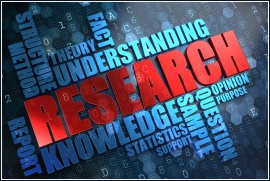 Treatment for addiction is one path which may be taken to help rebuild a person’s life when alcohol or drugs have become a problem. There is a compelling documentary recovery film recently out entitled The Anonymous People. The film is an interesting retrospective on the recovery movement in the United States and how it evolved, beginning with AA in the 1930’s, until present day.
Treatment for addiction is one path which may be taken to help rebuild a person’s life when alcohol or drugs have become a problem. There is a compelling documentary recovery film recently out entitled The Anonymous People. The film is an interesting retrospective on the recovery movement in the United States and how it evolved, beginning with AA in the 1930’s, until present day.
A special focus in the film is highlighting the message that people do recover from addiction, that there is a solution to this disease – and that solution is the decision to choose recovery. Recovery is a process that changes lives and takes individuals to a new destination in their life. Recovery is the journey that saves & enhances lives. To that end, recovery from addiction is of incomparable value.
In life, bad choices are made every day. As human beings, we learn to make better choices – often through the mistakes we endure as we travel through life one day at a time.
In reviewing the variety of recovery “paths”, there exist several routes by which an addicted person can find hope and direction in learning to live a drug free life. Some find their answers in church-based recovery programs. Churches recognize the reality of substance addictions and many have developed their own spiritual programs for dealing with drug addiction and offering hope for a better future.
12 Step Programs have been in widespread use for a long time and many lost in addiction have found the support, fellowship, and help needed in the rooms of AA, NA and other 12 step based programs. Some people in recovery from opioid addiction may find that their decision to take methadone or buprenorphine (suboxone) is not well-received in 12 step programs. This can make it difficult to feel accepted or supported there. However, not all NA or AA meetings are the same. NA and AA have themselves evolved over time, and some NA and AA members welcome all people suffering from addiction regardless of their drug of choice.
Addiction treatment is yet another path that leads toward recovery and the possibility of positive change. Treatment, like 12 step meetings, can vary considerably from one program to the next. Opioid treatment in particular often uses medication assistance as an additional tool to help people in their recovery journey. While medication assistance is scientifically proven to be beneficial to opioid addicted persons, it has endured some controversy through the years as those on the outside looking in chose judgment & criticism over compassion and understanding. Methadone and suboxone are proven, effective tools for alleviating the suffering that comes from opioid withdrawal.
In The Anonymous People documentary, there is a strong message that addicted people deserve love & support. Addicted people are from all walks of life. If treatment works, then advocating and supporting treatment is just and worthwhile. The film makes a persuasive argument that better advocacy is needed for the funding of addiction treatment services across the country. Addiction treatment advocacy has not been as effective as advocacy for other critical health conditions like HIV/AIDS or cancer.
As more families struggle with addiction and more voices are ultimately heard in their plea for treatment funding & support, we will hopefully see a shift in society whereby recovery is embraced as the answer to addiction.

 Many opioid addicted individuals eventually become interested in methadone after hearing others speak of its effectiveness in eliminating opiate withdrawal sickness.
Many opioid addicted individuals eventually become interested in methadone after hearing others speak of its effectiveness in eliminating opiate withdrawal sickness. Somewhat of a surprise was the recent ruling that the state of Massachusetts cannot ban the powerful new painkiller, Zohydro, from being prescribed in the state. The manufacturer of Zohydro, Zogenix, had argued that the ban was not constitutional and must be reversed.
Somewhat of a surprise was the recent ruling that the state of Massachusetts cannot ban the powerful new painkiller, Zohydro, from being prescribed in the state. The manufacturer of Zohydro, Zogenix, had argued that the ban was not constitutional and must be reversed. When a parent enters treatment for opioid addiction and begins methadone dosing, hopefully that person embraces the recovery process and the resumption of certain responsibilities that may have been neglected during addiction.
When a parent enters treatment for opioid addiction and begins methadone dosing, hopefully that person embraces the recovery process and the resumption of certain responsibilities that may have been neglected during addiction.


